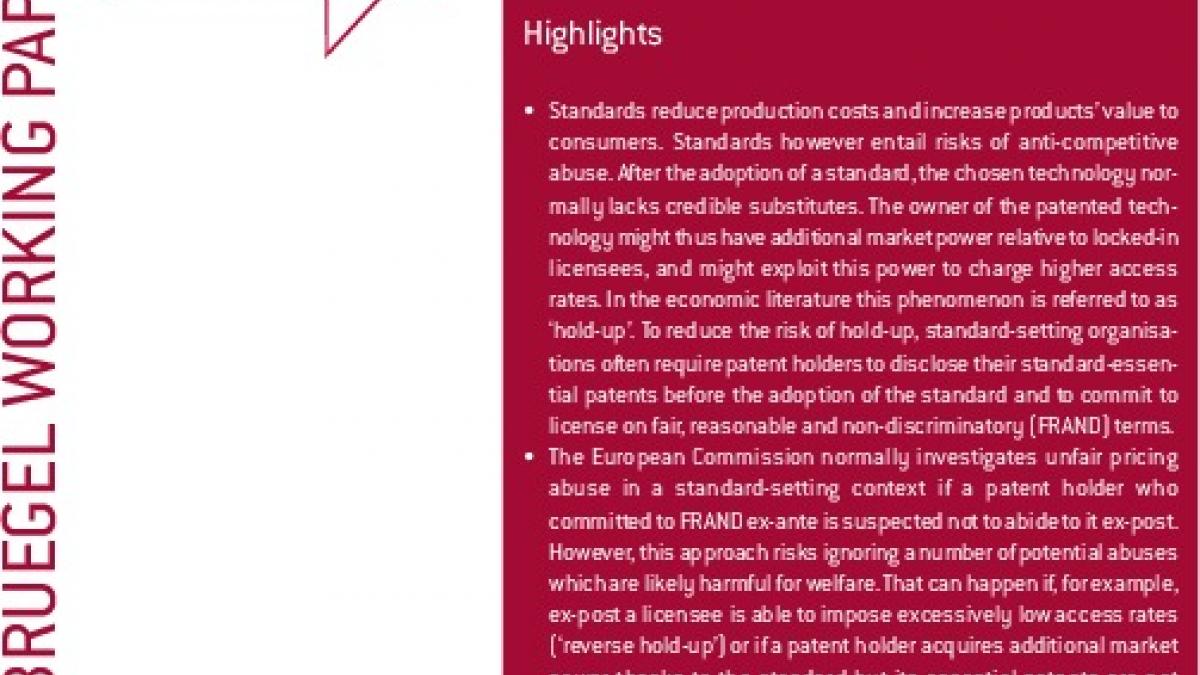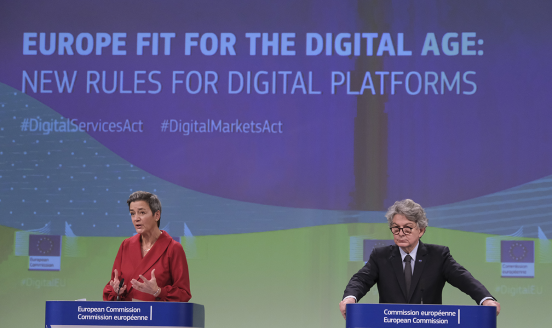European antitrust control and standard setting
Standards reduce production costs and increase products’ value to consumers. Standards however entail risks of anti-competitive abuse...

Standards reduce production costs and increase products’ value to consumers. Standards however entail risks of anti-competitive abuse. After the adoption of a standard, the chosen technology normally lacks credible substitutes. The owner of the patented technology might thus have additional market power relative to locked-in licensees, and might exploit this power to charge higher access rates. In the economic literature this phenomenon is referred to as ‘hold-up’. To reduce the risk of hold-up, standard-setting organisations often require patent holders to disclose their standard-essential patents before the adoption of the standard and to commit to license on fair, reasonable and non-discriminatory (FRAND) terms.
The European Commission normally investigates unfair pricing abuse in a standard-setting context if a patent holder who committed to FRAND ex-ante is suspected not to abide to it ex-post. However, this approach risks ignoring a number of potential abuses which are likely harmful for welfare. That can happen if, for example, ex-post a licensee is able to impose excessively low access rates (‘reverse hold-up’) or if a patent holder acquires additional market power thanks to the standard but its essential patents are not encumbered by FRAND commitments, for instance because the patent holder did not directly participate to the standard setting process and was therefore not required by the standard-setting organisations to commit to FRAND ex-ante.
A consistent policy by the Commission capable of tackling all sources of harm should be enforced regardless of whether FRAND commitments are given. Antitrust enforcement should hinge on the identification of a distortion in the bargaining process around technology access prices, which is determined by the adoption of the standard and is not attributable to pro-competitive merits of any of the involved players.



